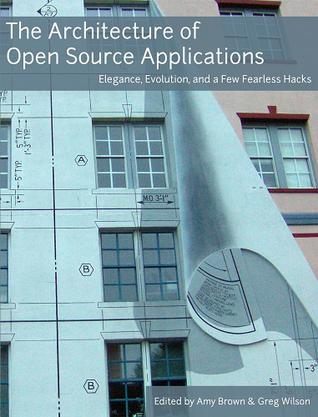目录
Introduction Amy Brown and Greg Wilson
1. Asterisk Russell Bryant 1
2. Audacity James Crook 15
3. The Bourne-Again Shell Chet Ramey 29
4. Berkeley DB Margo Seltzer and Keith Bostic 45
5. CMake Bill Hoffman and Kenneth Martin 67
6. Eclipse Kim Moir 77
7. Graphite Chris Davis 101
8. The Hadoop Distributed
File System Robert Chansler, Hairong Kuang, Sanjay Radia,
Konstantin Shvachko, and Suresh Srinivas 111
9. Continuous Integration C. Titus Brown and Rosangela Canino-Koning 125
10. Jitsi Emil Ivov 139
11. LLVM Chris Lattner 155
12. Mercurial Dirkjan Ochtman 171
13. The NoSQL Ecosystem Adam Marcus 185
14. Python Packaging Tarek Ziadé 205
15. Riak and Erlang/OTP Francesco Cesarini, Andy Gross, and Justin Sheehy 229
16. Selenium WebDriver Simon Stewart 245
17. Sendmail Eric Allman 271
18. SnowFlock Roy Bryant and Andrés Lagar-Cavilla 291
19. SocialCalc Audrey Tang 303
20. Telepathy Danielle Madeley 325
21. Thousand Parsec Alan Laudicina and Aaron Mavrinac 345
22. Violet Cay Horstmann 361
23. VisTrails Juliana Freire, David Koop, Emanuele Santos,
Carlos Scheidegger, Claudio Silva, and Huy T. Vo 377
24. VTK Berk Geveci and Will Schroeder 395
25. Battle For Wesnoth Richard Shimooka and David White 411
Bibliography
Making Software
【展开】
【收起】
内容简介
Architects look at thousands of buildings during their training, and study critiques of those buildings written by masters. In contrast, most software developers only ever get to know a handful of large programs well—usually programs they wrote themselves—and never study the great programs of history. As a result, they repeat one another's mistakes rather than building on one another's successes.
This book's goal is to change that. In it, the authors of twenty-five open source applications explain how their software is structured, and why. What are each program's major components? How do they interact? And what did their builders learn during their development? In answering these questions, the contributors to this book provide unique insights into how they think.
If you are a junior developer, and want to learn how your more experienced colleagues think, this book is the place to start. If you are an intermediate or senior developer, and want to see how your peers have solved hard design problems, this book can help you too.
【展开】
【收起】
下载说明
1、追日是作者栎年创作的原创作品,下载链接均为网友上传的的网盘链接!
2、相识电子书提供优质免费的txt、pdf等下载链接,所有电子书均为完整版!
下载链接
